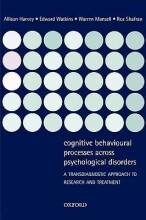Decision Making and Caregivers
12 important questions on Decision Making and Caregivers
Early stages of dementia
Middle stages of dementia
- Severer memory disturbances
- greater personality changes
- impairments in abstract thinking and judgment
- anger and agitation
- depression
Late stages of dementia
- Often: nursing home placement
- Not necessarily a decrease in caregiver burden
- Improvement in burden might occur
- Increase in financial strain
- Higher grades + faster learning
- Never study anything twice
- 100% sure, 100% understanding
What do caregivers with a high burden show?
Financial Capacity Instruments
- Basic monetary skills
- Financial conceptual knowledge
- Cash transactions
- Checkbook management
- Bank Statement management
- Financial judgment
- Bill payment
- Knowledge of personal assets/ estate arrangements
- Investment decision making
Prodormal phase of dementia
- Financial conceptual knowledge
- Bank statement management
- Bill payment skills
Financial decision making- mild dementia
- Patients with a mild AD early on have a broad range of impaired financial skills
- These skills hsow relatively rapid further decline over a one-year period
- Declines emerges on both simple and complex tasks on almost all domains.
Caregiver predictors are gender difference:
- Female caregivers experience more depressive symptoms, anxiety and general psychiatric symptoms than male caregivers
- Women spend more time on caregiving tasks than men
- Women perceive greater strain and burden related to caregiving than men and are more likely to experience role conflicts (e.g. with work and social activities)
- Women are more likely to attempt to be “supercaregivers” and accomplish several tasks simultaneously whereas men are likely to plan a smaller number of tasks and accomplish then in a linear manner
Caregiver predictors relation to patient
Caregiver predictors coping
Caregiver predictors personality
Caregiver predictors other factors
The question on the page originate from the summary of the following study material:
- A unique study and practice tool
- Never study anything twice again
- Get the grades you hope for
- 100% sure, 100% understanding






























